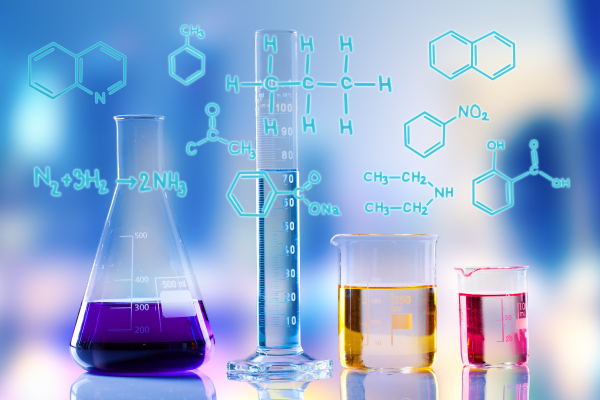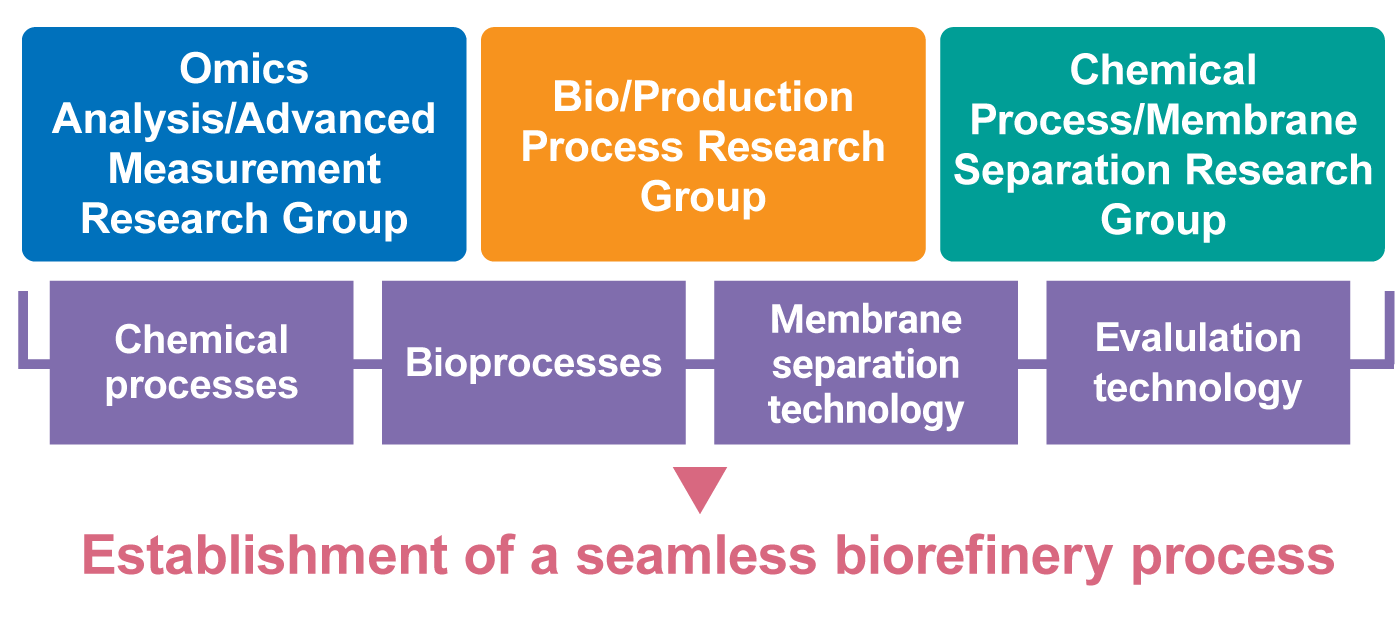Advanced Analysis, Evaluation and Processing Research Unit
Overview

Aiming to establish a seamless biorefinery processEstablishment of seamless process for bio-refinery
This research group is working on chemical processes and bioprocesses that optimized for production of target chemicals. In the field of (bio)chemical processes, we aim to selectively convert biomass into high-value-added components through thermal, chemical, and biochemical transformation. Meanwhile, with regard to bioprocesses we are studying mixing characteristics and mass transfer, which are key elemental chemical engineering techniques required for microbial fermentation, from both an experimental and theoretical perspective. Membrane separation technology, which is essential for the purification of fermentation products, is also one of research topics. Through this research, we ultimately aim to integrate these elemental technologies to establish a seamless biorefinery process.
We are also working to advance research into evaluation technologies that will serve as a foundation for bioprocessing research. Specifically, we are working to establish a fundamental platform for evaluation of biomolecule interaction at the molecular level, including the measurement of interfacial mechanical response using atomic force microscopy, which enables the world's highest resolution of force in a liquid environment.

Research Groups
Omics Analysis/Advanced Measurement Research Group
This research group seeks to develop fundamental technologies that have the potential to serve as a collective life science platform for the future. For example, metabolome analysis allows simultaneous analysis of intracellular metabolites, which yields data on characteristics and conditions of cells. At Kobe University, metabolome analysis is employed to identify metabolic substances that affect efficiency of bioproduction, select quality cells, and optimize culture conditions. We are also pursuing innovation in advanced spectroscopy techniques such as femtosecond laser-based spectroscopy and spectroscopy using ultrashort-pulse lasers as a light source. In addition, we are developing high-speed, high-throughput evaluation technologies for use in cell breeding and enzyme development.
Bio / Production Process Research Group
This research group studies processes for biologically producing useful substances from biomass-pretreated material and how such processes can be scaled up. Biomass-pretreated material contains lignin and fermentation inhibitors, which causes solid fraction of cellulose. As a solution, we are working to develop a bioreactor with practical functions such as stirring and fermentation control. For fuel production from oils and fats by the enzymatic method, we are studying the development of efficient bioprocesses with the real biomass process in mind.
Chemical Process / Membrane Separation Research Group
For efficient biomass utilization, both of thermo-chemical conversion technology and bioconversion technology, are being considered. To use of lignin in biomass, in particular, it is desirable to choose one from a broad spectrum beyond bioconversion. This research group aims to separate components of biomass and achieve thermal conversion for efficient use of lignin, while evaluating characteristics of the chosen biomass. One priority research topic is efficient production of bio-oil based on hydrogen reduction and other technologies. In addition, we aim to create new value by achieving chemical conversion of saccharides using catalysts, and are also pursuing structural analysis of biomass. In order to obtain end products, it is necessary to separate and refine useful substances produced in a bioreactor using a simple, low-cost process. We are using Kobe University’s proprietary technology for membrane separation to provide innovative technologies for separating microorganisms from culture solutions as well as separating target matters from culture solutions and refining them. The wealth of accumulated knowledge available to this group should allow it to develop efficient membrane separation/refinement technology for bioproduction. Our ultimate goal is to establish an integrated membrane engineering technology, which makes it possible to produce customized membranes that separate and permeate the desired target materials.
